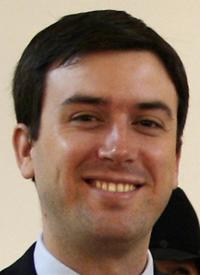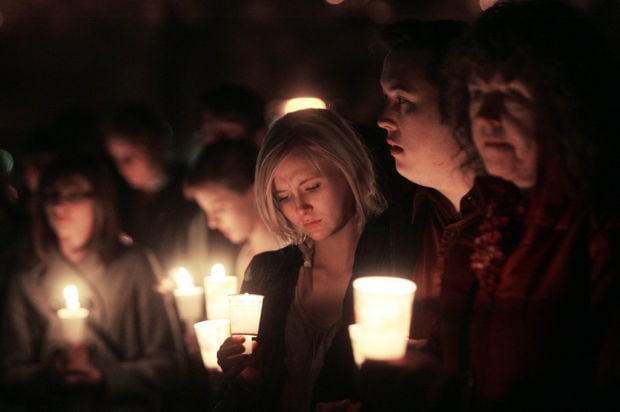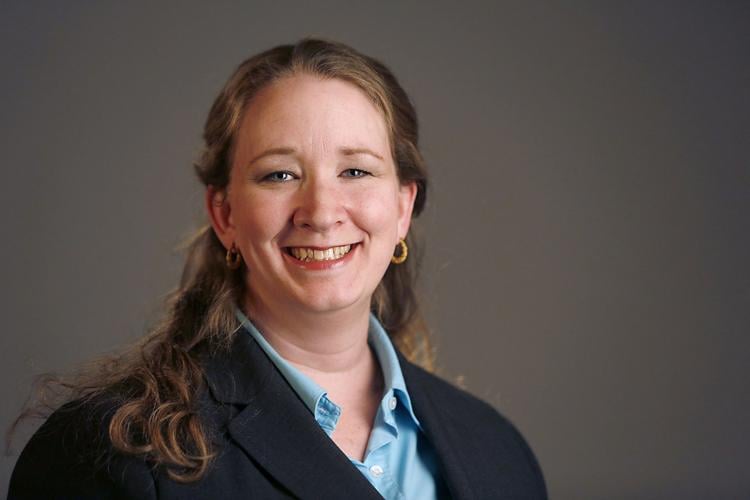Eight years ago, a young man walked up to a small crowd of people gathered to talk with their congresswoman, pulled out a gun and fired 33 bullets in 15 seconds.
In those 15 seconds, he murdered six people and physically injured 13 more.
I make that distinction because the physical toll is knowable. The mental, emotional and spiritual wounds of a community are not so easily tallied.
I’ve written variations of these facts many times since the Jan. 8, 2011, mass murder: Then-Rep. Gabby Giffords, whom the murderer wanted to assassinate, was shot through her brain and survived.
Christina-Taylor Green, 9; Dorothy “Dot” Morris, 76; U.S. District Judge John M. Roll, 63; Phyllis Schneck, 79; Dorwan Stoddard, 76; and Gabriel “Gabe” Zimmerman, 30, were shot and killed.
And the 13 people shot and injured still live with the effects of the trauma.
The rest of us, touched directly or indirectly, have filed that awful morning and those days away.
Do you remember what you were doing and where you were when you heard the news? Can you recall what you felt, what you did?
We risk the details, the memories, the shock of that day becoming rote.
There’s a danger in that, in not quite forgetting, but not quite remembering.
I’m not sure how long it takes for a community’s tragedy to become part of its history instead of its present.
And I’m searching for a word that fits better than tragedy, because tragedy gives off a sense of inevitability of events, an out-of-our-hands and passivity we shouldn’t let set in. The Jan. 8 attack was a deliberate act enabled by the multiple failures of individuals, institutions and systems — failures that continue today.
These failures are perpetuated by politicians and powerful lobbyists who actively work against changes that would help public safety and reduce gun violence.
Opponents of such changes return to the “X policy wouldn’t haven’t prevented the fill-in-the-blank shooting” as if the inability to fix the past is a reason to forfeit the next victims’ future.
The Jan. 8 shooting was — is — tragic. It is a horror. That mass shootings have happened again and again and again and again in our nation is an outrage.
Recently, I’ve heard people talk about Jan. 8 as a time when Tucsonans came together, when we were unified, if only for a brief time. It’s offered as a contrast to the divisions of today — proof that we can come together if the impetus is terrible enough.
We shouldn’t need a mass murder before we seek common ground with one another.
We must be better than that — we have to be.
2011 Tucson mass shooting victims
Christina-Taylor Green
Updated
Killed: Christina-Taylor Green, age 9.
Judge John Roll
Updated
Killed: Federal Judge John Roll, District of Arizona
Gabe Zimmerman
Updated
Killed: Gabe Zimmerman, aide to Rep. Giffords.
Phyllis Schneck
Updated
Killed: Phyllis Schneck
Dorothy Morris
Updated
Killed: Dorothy Morris
Dorwan Stoddard
Updated
Killed: Dorwan Stoddard, 76
Gabrielle Giffords
Updated
U.S. Rep. Gabrielle Giffords, pictured after treatment for a gunshot wound to the head.
Bill Badger
Updated
Bill Badger, a retired Army National Guard colonel, was grazed by a bullet on the back of his head yet he was one of the men who tackled Jared Lee Loughner and prevented him from reloading his gun. "I'm a little more jumpy than I was before," he said. "If I hear, you know, a door slam or something, or a loud noise, why - you jump."
Ron Barber
Updated
Ron Barber, director for Rep. Gabrielle Giffords' district office, sits in his Tucson office on his first day back to work in the July 5, 2011 file photo. It appears more and more like Barber will run for her seat in the special election.
Ken and Carol Dorushka
Updated
Ken Dorushka was shot in the forearm as he shielded his wife, Carol. "I find myself watching people a little more closely than I used to. I saw a guy in the grocery store walking around with a gun on his hip, and that disturbed me tremendously."
Eric Fuller
Updated
Eric Fuller, who was shot twice, feared he would be unable to play tennis, but he has resumed playing. However, his emotional recovery has not been so smooth. He was taken for a mental-health evaluation at Palo Verde Hospital, where he spent several days, after disrupting a town-hall-style television program in the aftermath of the shootings.
Randy Gardner
Updated
Randy Gardner was shot through the right foot, just below the ankle, as he chatted with retiree Phyllis Schneck, who died in the shooting. "The doctors told me it was miraculous it didn't hit any bone," Gardner said.
Suzi Hileman
Updated
Suzi Hileman touches Pima County Sheriff's Deputy Gilbert Caudillo, who helped Hileman after she was shot in the chest and right hip. "He saved my life," she said of Caudillo. "I'm only here because of that."
George Morris
Updated
George Morris was shot in his back and lower left leg as he tried in vain to shield his wife, Dorothy, from a spray of gunfire. "This is someone I fell madly in love with when I was 16," he said. "I miss her terribly."
Mary Reed
Updated
Mary Reed was shot in the arms and back as she shielded her 17-year-old daughter, Emma McMahon. She also suffered shrapnel wounds to the face and leg. Reed's whole family - her husband, Tom McMahon, and their two teenagers - was in line to see Giffords when gunfire erupted. "They can never forget it," Reed said. "But I'm hoping they heal."
Pam Simon
Updated
Rep. Gabrielle Giffords' community outreach coordinator, Pam Simon, was shot in the chest and through the right wrist. The bullet that entered her chest lodged in her upper hip. "I am very lucky. The doctors are still scratching their heads," Simon said. "Quite miraculously, other than chipping my pelvic bone, the bullet did not damage any internal organs."
Mavanell "Mavy" Stoddard
Updated
Mavanell "Mavy" Stoddard was shot three times in the legs. Stoddard also lost her husband, Dorwan "Dory" Stoddard, who died as he shielded Mavy from the gunfire. "I have to go to my good memories of a wonderful man and not dwell on the bad," Stoddard said.
Jim Tucker
Updated
Jim Tucker, pictured with Giffords and his wife, Doris, moments before the shooting, was shot in the calf and the the right collarbone. The bullet that hit his collarbone split apart and lodged in various parts of his back. One fragment cracked a vertebra. The photo shows government working the way it's supposed to work, he said. "She was doing the thing she does best. She listens to constituents." Doris wasn't injured in the attack.






